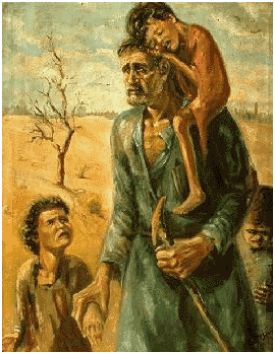ISMAËL DIADIÉ HAÏDARA (born 1957) is a librarian, poet, philosopher, historian and president of the Kati Fund Foundation. A regular speaker, he has an extensive work published with titles such as Le Statut du monde. Nécessité, possibilité et contingence chez Ibn Arabi, Cordoba, 1992; Yawdar Pasha y la conquista saudí del Songhay (1591-1599) Instituto de Estudios almerienses, 1993 y Rabat 1996; L’Espagne musulmane et l’Afrique subsaharienne, éditions Donniya, Bamako, 1997; Les Juifs à Tombouctou, éditions Donniya, Bamako, 1999; Los otros Españoles, mr ediciones, Madrid, 2004; Los últimos Visigodos, rd editores, Sevilla, 2003; Las lamentaciones del viejo Tombo, Maremoto, Málaga, 2006; Abana, Rihla, Córdoba, Almuzara, 2006; Monólogo de un carnero, Árbol de Poe, Málaga, 2012; Zimma, Vaso Roto Mexico, 2014, Madrid 2015; Tombuctú, Andaluces en la ciudad pérdida del Sahara, Almazara, 2015. Tebrae, Cantabria, 2021.
BREVE HISTORIA DE MI VIDA
Tombe la neige.
Salvatore Adamo.
Tenía tres estaciones de lluvia en el año de la independencia de este país
Tenía seis estaciones de lluvia en el año de la guerra del Norte
Tenía nueve estaciones de lluvia en el año del cólera
Tenía doce estaciones de lluvia en el año de la gran hambruna
Tenía quince estaciones de lluvia en el año de la otra guerra
Cuando cayeron los obuses de los yihadistas tenía cincuenta y cuatro años
Elegí entre el ataúd y la maleta y me fui con mi hija y mi hijo
Me fui como otras cincuenta y cuatro personas en una barcaza
Han pasado diez años y todas las noches caen obuses en mis sueños
Todas las noches sentado sobre una maleta
Yo también espero
y cae la nieve
Solo cae la nieve.
BRIEF STORY OF MY LIFE
Snow falls
Salvatore Adamo *
I was three years old in the year of independence of this country
I was six years old in the year of the Northern war
I was nine years old in the cholera year
I was twelve years old in the year of the great famine
I was fifteen years old in the year of the other war
When the jihadist shells fell, I was fifty-four years old
I chose between the coffin and the suitcase,
and I left with my daughter and my son
I left my city like fifty-four other people on a barge.
Ten years have passed and every night shells fall in my dreams
Every night sitting on a suitcase
I’m also waiting
and the snow falls
Only snow falls.
* Belgian-Italian singer
Dírbheathaisnéis Ghairid
Sneachta ag titim
Salvatore Adamo *
Trí bliana d'aois a bhíos nuair a bhaineamar neamhspleáchas amach
Sé bliana d'aois nuair a bhris Cogadh an Tuaiscirt amach
Naoi mbliana d'aois i mbliain an chalair
Dhá bhliain déag d'aois i mbliain an Ghorta Mhóir
Cúig bliana déag d'aois nuair a tharla an cogadh eile
Nuair a thit sliogáin na jiohádach, ceithre bliana is caoga a bhíos
Bhí rogha le déanamh, cónra nó cás taistil,
D'fhágas le m'iníon is lem' mhac
D'fhágas an chathair i mbáirse, ceathrar is caoga eile im' theannta.
Deich mbliana níos déanaí, titeann sliogáin gach oíche im' bhrionglóidí
Im' shuí ar chás taistil dom chuile oíche
Táimse leis ag feitheamh
agus an sneachta ag titim
gan ach sneachta ag titim
* Amhránaí Beilgeach-Iodálach













.jpg)



